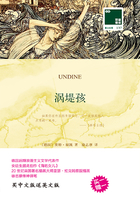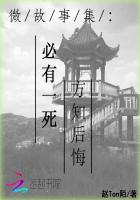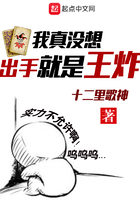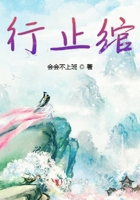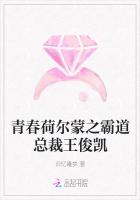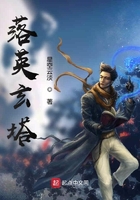His feelings overcame him; he fell upon his knees, looked up to heaven and uttered aloud a fervent thanksgiving, in which he spoke of his wife, sick and helpless, and his children without bread, whom the timely bounty, from some unknown hand, would save from perishing.
The student stood there deeply affected, and his eyes filled with tears. “Now,” said the professor, “are you not much better pleased than if you had played your intended trick?”
The youth replied, “You have taught me a lesson which I will never forget. I feel now the truth of those words, which I never understood before: ‘It is more blessed to give than to receive.’”
一天,我们大学里一个年轻的学生和一位教授一起散步。这位仁慈的教授常被学生称为朋友,他对那些急切希望得到指教的学生非常友善。
途中,他们看到一双旧鞋放在路边,便猜测鞋子可能是某个在附近田地里劳作的穷人的,他一天的劳动可能就快结束了。
学生转过头对教授说:“我们愚弄他一下吧,把他的鞋先藏起来,然后躲到灌木丛后,等着看他找不到鞋子会是怎样困惑的表情。”
“年轻的朋友,”教授答道,“我们永远不该拿穷人取乐。如果你富有,就应该去帮助穷人,那样会让你获得更大的快乐。我们在每只鞋里各放一枚硬币,然后躲起来看他对这一意外发现有何反应。”
学生按教授说的做了,然后他们躲到附近的灌木丛中。
很快,那个穷人的劳动结束了,他走出田地,来到放外套和鞋子的小路上。他边穿外套,边把一只脚伸到鞋子里,但是感觉到鞋里有硬东西,他便弯下腰摸那是什么,他发现那竟是一枚硬币。
他吃惊地看着那枚硬币,又看另一面,如此看了又看。然后,扫视了一下周围,一个人影都看不到。他把这枚硬币装进口袋,又去穿另一只鞋,结果又发现了另一枚硬币,他更惊讶了。
他感动至极,双膝跪地,仰望上苍,大声地表达着自己的感激之情——正是陌生人的解囊相助,使他患病无助的妻子和食不果腹的孩子有了新的希望。
那名学生被深深地感动了,他的眼里饱含着泪水。“喏,”教授说,“这难道不比恶作剧更使你快乐吗?”
年轻人答道:“您给我上的这堂课我将永生难忘。现在,我终于明白了那句我一直都不理解的话:‘给予比接受更幸福。’”
赠人玫瑰,手有余香。如果你有能力,就应该去帮助别人,那样会让你获得更大的快乐。
1. “My young friend,” answered the professor, “we should_________ amuse ourselves at the expense of the_________. But you are rich, and may give yourself a much greater pleasure by means of the poor man. Put a_________ into each shoe, and then we will hide ourselves and watch_________ the discovery affects him.”
2. The poor man soon_________ his work, and came across the field to the path where he had left his coat and shoes. While putting on his coat he slipped his foot into one of his_________; but feeling something_________, he stooped down to feel_________ it was, and found the coin.
3. The student stood there_________ affected, and his eyes filled with tears. “Now,” said the professor, “are you not much better_________ than if you had played your intended_________?”
1. 这位仁慈的教授常被学生称为朋友。
____________________________________________________________________________________________________________
2. 正是陌生人的解囊相助,使他患病无助的妻子和食不果腹的孩子有了新的希望。
____________________________________________________________________________________________________________
3. 您给我上的这堂课我将永生难忘。
____________________________________________________________________________________________________________
1. We should never amuse ourselves at the expense of the poor.
at the expense of:在损害……情况下,以……为代价;由……承担费用
____________________________________________________________________________________________________________
2. While putting on his coat he slipped his foot into one of his shoes...
slip into:匆忙穿上;(使)滑进;塞进
____________________________________________________________________________________________________________
接受不完美的人生
The Missing Piece
佚名 / Anonymous
Once a circle missed a wedge. The circle wanted to be whole, so it went around looking for its missing piece. But because it was incomplete and therefore could roll only very slowly, it admired the flowers along the way. It chatted with worms. It enjoyed the sunshine. It found lots of different pieces, but none of them fit. So it left them all by the side of the road and kept on searching. Then one day the circle found a piece that fit perfectly. It was so happy. Now it could be whole, with nothing missing. It incorporated the missing piece into itself and began to roll. Now that it was a perfect circle, it could roll very fast, too fast to notice the flowers or talking to the worms. When it realized how different the world seemed when it rolled so quickly, it stopped, left its found piece by the side of the road and rolled slowly away.
The lesson of the story, I suggested, was that in some strange sense we are more whole when we are missing something. The man who has everything is in some ways a poor man. He will never know what it feels like to yearn, to hope, to nourish his soul with the dream of something better.
There is a wholeness about the person who has come to terms with his limitations, who has been brave enough to let go of his unrealistic dreams and not feel like a failure for doing so. There is a wholeness about the man or woman who has learned that he or she is strong enough to go through a tragedy and survive, he or she can lose someone and still feel like a complete person.
Life is not a trap set for us by God so that he can condemn us for failing. Life is not a spelling bee, where no matter how many words you’ve gotten right, you’re disqualified if you make one mistake. Life is more like a baseball season, where even the best team loses one-third of its games and even the worst team has its days of brilliance. Our goal is to win more games than we lose.
When we accept that imperfection is part of being human, and when we can continue rolling through life and appreciate it, we will have achieved a wholeness that others can only aspire to. That, I believe, is what God asks of us—not “Be perfect” , not “Don’t even make a mistake”, but “Be whole” .
If we are brave enough to love, strong enough to forgive, generous enough to rejoice in another’s happiness, and wise enough to know there is enough love to go around for us all, then we can achieve a fulfillment that no other living creature will ever know.

